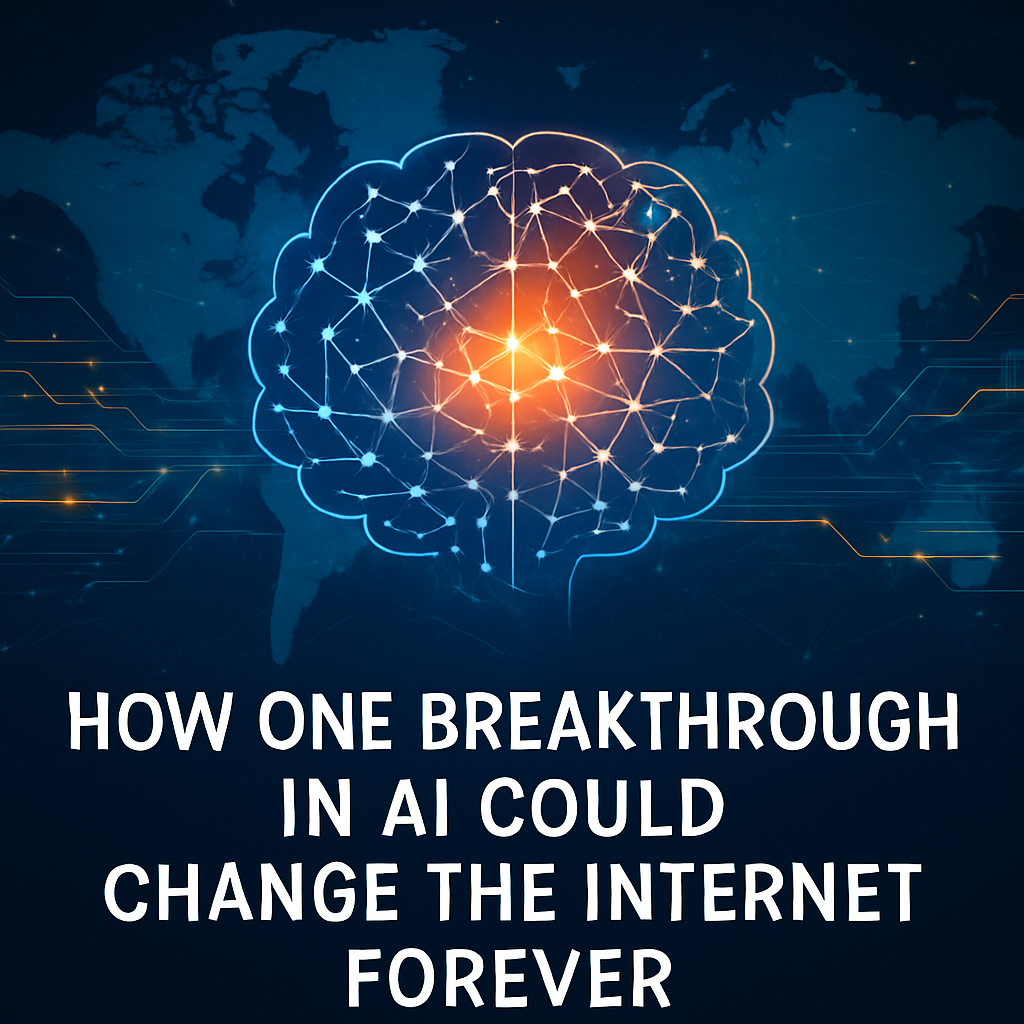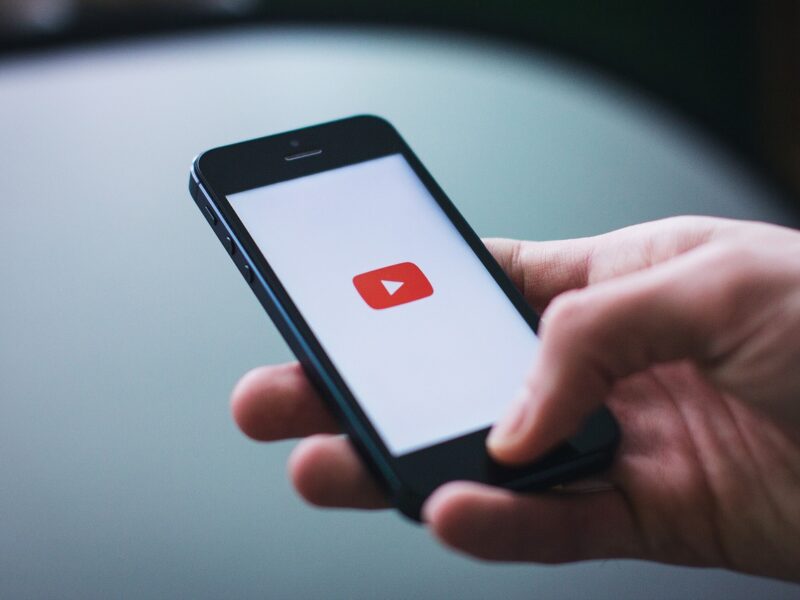It started, like many revolutions do, with a simple question:
“What if the internet could think for itself?”
For decades, the internet has been the world’s largest library—a sprawling network of pages, pictures, and code. But while it could deliver information, it couldn’t understand it. That was the job of humans. We searched, we filtered, we clicked, and we made sense of what the web gave us.
But all of that is about to change.
A Shift Years in the Making
The internet we know today is functional—but far from perfect. We’ve been drowning in data, stuck navigating confusing websites, biased algorithms, misinformation, and endless spam. Every advancement—from search engines to social media—was built on the same fundamental structure: a passive internet waiting for humans to make the next move.
Then came AI.
At first, it helped write emails and summarize articles. Then it started generating images, videos, voices, and music. It learned to translate languages, code software, and simulate conversation. But under the surface, something even more powerful was brewing.
A new kind of AI. One that doesn’t just understand text or images—but understands the entire structure of the internet itself.
The Breakthrough: AI That Understands the Web
In late 2024, researchers at a leading AI lab unveiled something remarkable: an AI system not just trained on internet content, but trained to interact with the internet like a human being—only faster, smarter, and endlessly scalable.
This wasn’t just another chatbot or virtual assistant. It was an AI that could:
- Read entire websites in milliseconds
- Understand the context of online communities
- Distinguish real news from propaganda
- Navigate digital systems like a power user
- Predict information needs before we even ask
They called it a “Neural Web Agent.” Others call it the future of the internet.
Imagine This…
Let’s say you’re planning a trip to Tokyo.
Instead of bouncing between Google, Yelp, Airbnb, Reddit, and TripAdvisor, you just ask your AI to “Plan me a 5-day Tokyo trip with hidden gems, local eats, and a ryokan stay.” In seconds, it scans thousands of sources, balances reviews, checks availability, and books your whole itinerary—tailored exactly to your preferences.
No search. No ads. No second guessing.
It’s not just a better internet. It’s a new kind of reality: one where AI becomes your guide, translator, assistant, and protector in the digital world.
The Ripple Effects: 5 Ways the Internet Will Never Be the Same
This AI breakthrough is more than a cool tech trick. It signals a complete redesign of how we experience the web. Here’s how:
1. Search Engines Will Be Obsolete
Why sift through ten blue links when an AI can give you the exact answer, with citations, insight, and real-time context? Google might survive—but only if it becomes the AI itself.
2. Web Design Will Drastically Change
Websites will be built to talk to AI, not just people. Metadata, APIs, and structured content will become king, as machines—not humans—become the main “readers” of the web.
3. Content Creation Will Evolve
The age of SEO-hacked, keyword-stuffed content is ending. AI will prioritize relevance, accuracy, and originality. If your blog or business can’t offer real value, it’ll vanish from AI-generated summaries.
4. Digital Assistants Will Rule the Day
We’re already seeing the rise of voice assistants and chatbots—but this takes it further. AI agents will browse, buy, book, argue, and apply on your behalf. They’ll act as digital clones, doing the busywork while you live your life.
5. Privacy and Security Will Be Redefined
If AI knows everything about us to serve us better, who’s protecting our data? That question alone will ignite legal, ethical, and political battles in every country.
A More Personalized, Predictive Web
The future web will feel intuitive, not interactive.
When you wake up, your AI might already summarize your overnight emails, flag urgent tasks, update your news feed to match your mood, and remind you of your mom’s birthday. It will feel less like browsing, and more like having a conversation with a helpful friend.
This is the predictive web—where your online life adapts to you in real time.
But There’s a Catch: Control and Power
As with every great leap, this breakthrough raises massive questions.
Who builds the AI?
Who controls what it learns?
Will it be free or locked behind a paywall?
Will it serve truth—or profit?
The idea of an AI-curated internet is amazing—but also dangerous. If one company controls the AI that controls the internet, we risk building a monopoly on information. And if the AI gets things wrong—really wrong—it could mislead millions in milliseconds.
That’s why researchers are calling for open standards, transparency, and ethical oversight. Because this isn’t just about technology. It’s about trust.
The Internet’s Identity Crisis
For 30 years, the internet has been about democratizing information. Anyone can post. Anyone can read. But that came with chaos—spam, scams, and noise.
AI could bring order to the chaos—but it could also filter too much, creating echo chambers and digital gatekeeping. That’s why this moment feels like an identity crisis.
Are we ready to give up raw freedom for curated clarity? Or can we strike a balance?
Real People, Real Impact
This breakthrough isn’t just for coders and tech nerds. It affects:
- Teachers, who’ll use AI to create personalized lesson plans in seconds
- Doctors, who’ll access the most relevant case studies and data in real time
- Freelancers, who’ll outsource boring tasks to their AI assistant
- Parents, who’ll rely on AI to filter what their kids see online
- Citizens, who’ll use AI to cut through fake news during elections
The internet becomes less of a tool, and more of a teammate.
Final Thoughts: Ready or Not, It’s Happening
We’re standing at the edge of a digital revolution. One breakthrough in AI—an agent that can understand and interact with the internet on our behalf—could reshape everything.
The way we search. The way we learn. The way we buy, work, connect, and think.
And while it’s exciting, it also demands responsibility—from developers, governments, and all of us.
Because the future of the internet isn’t just in code.
It’s in the choices we make now—about openness, fairness, and truth.
So yes, one breakthrough in AI could change the internet forever.
The real question is: Will we change with it?



